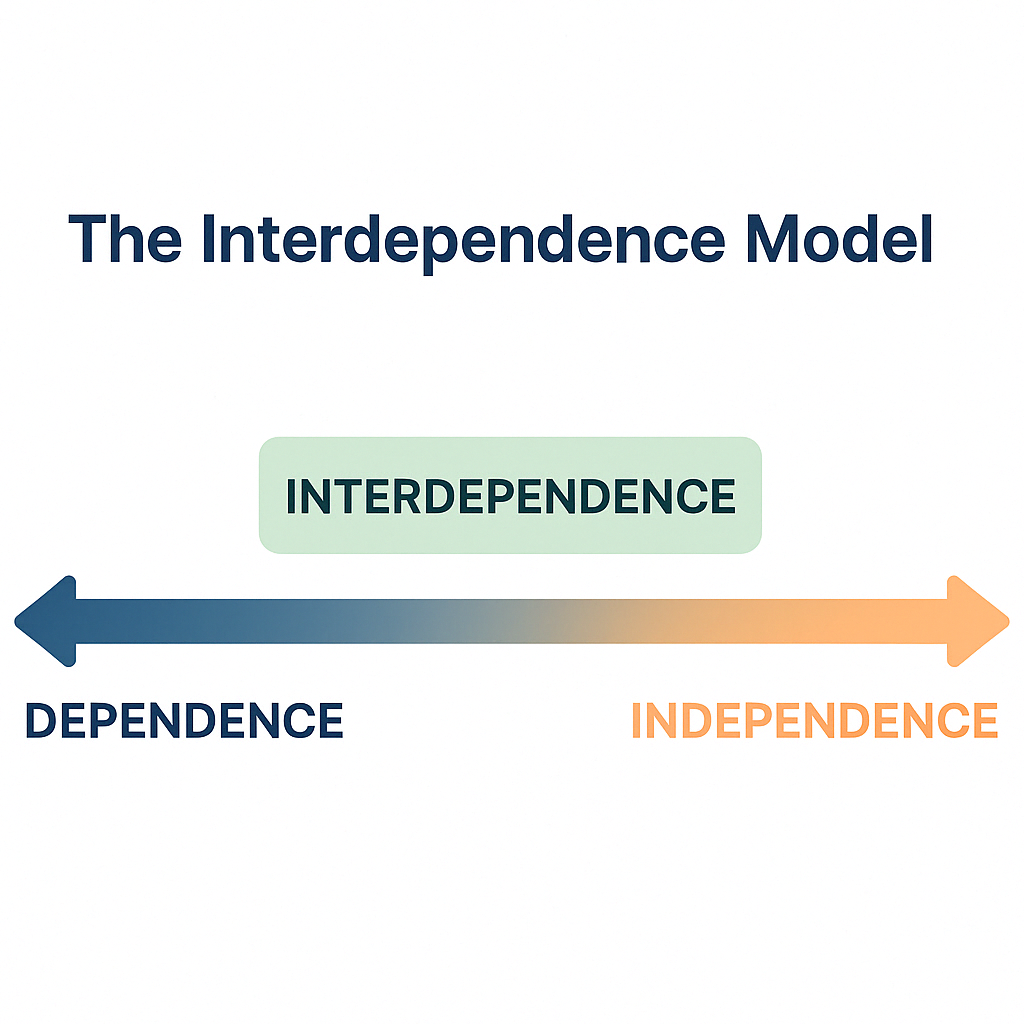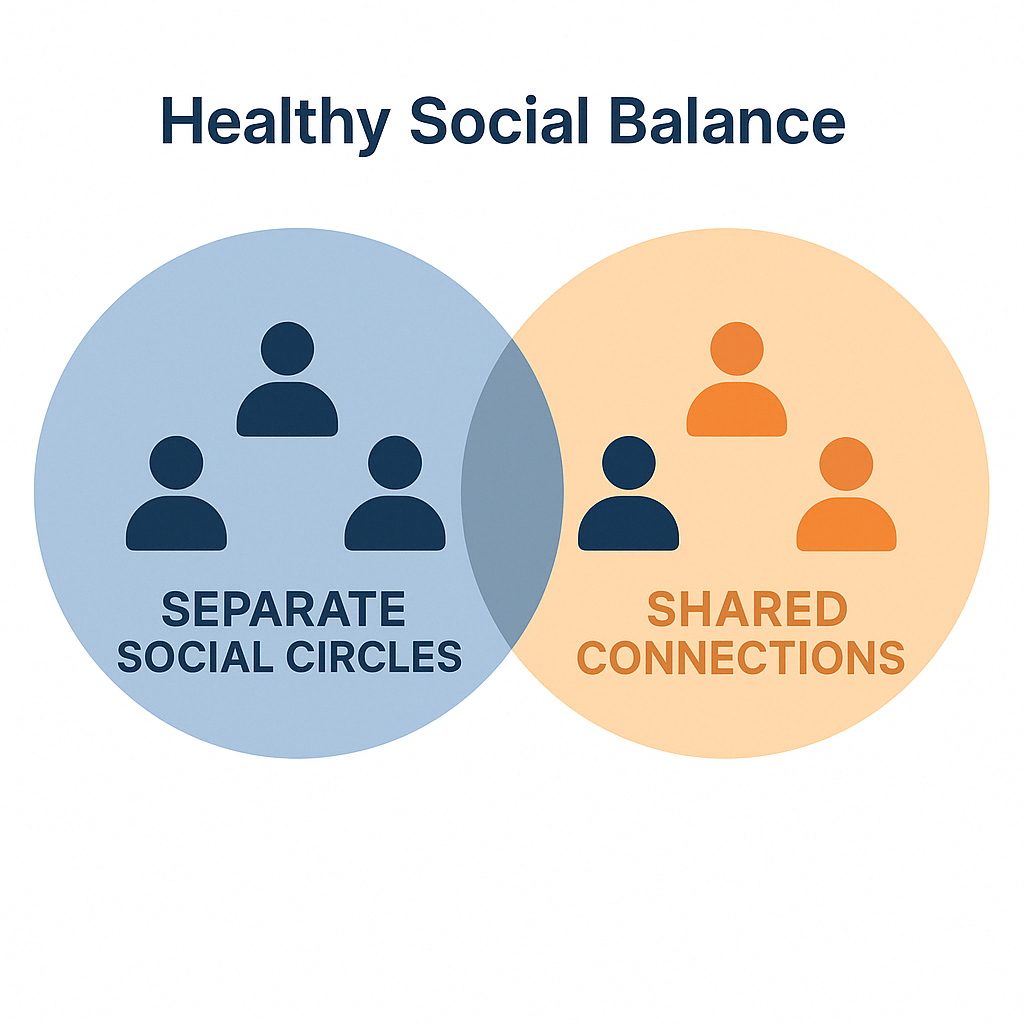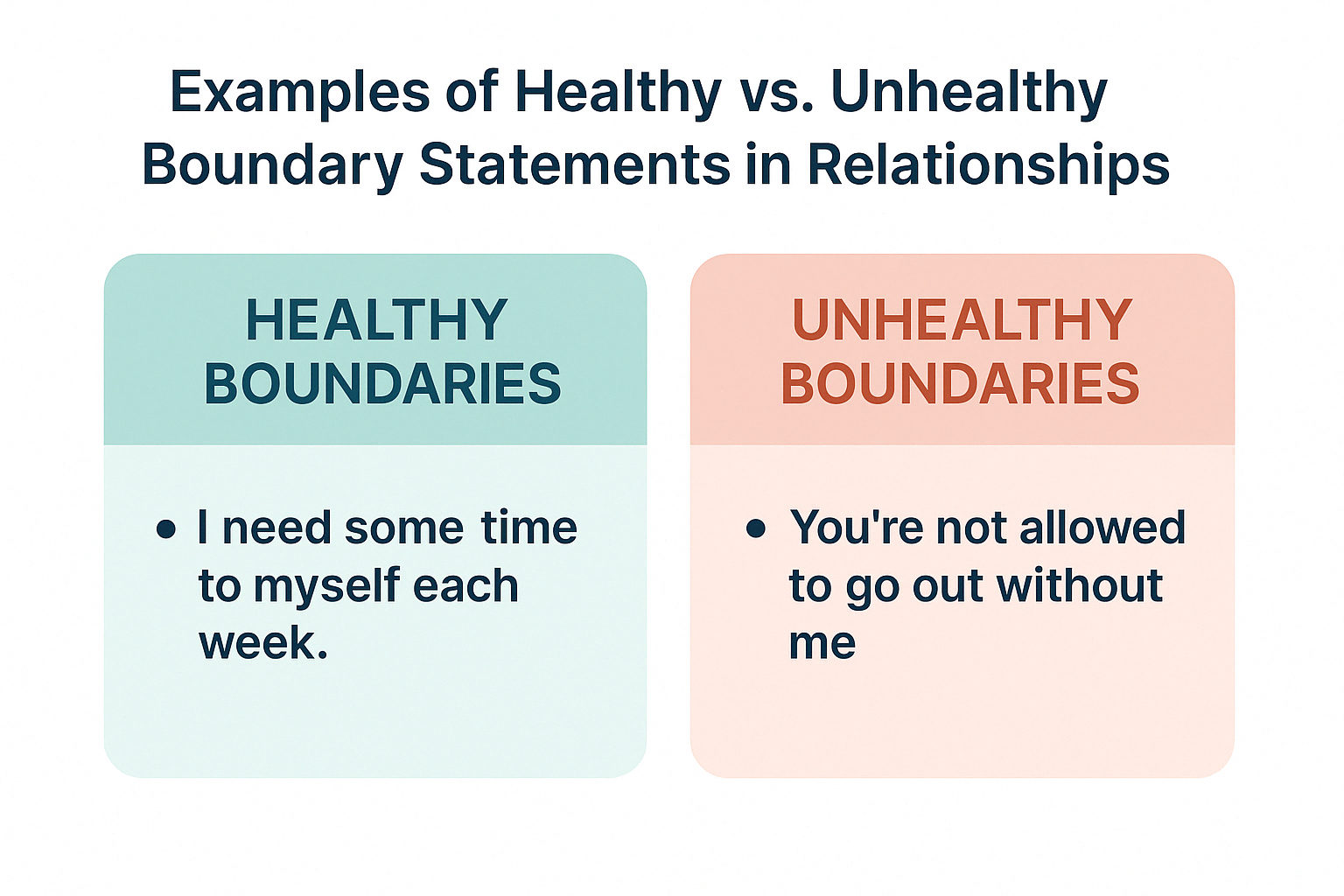Introduction
When we (MD and Techie) first started dating, we quickly fell into that beautiful, all-consuming phase where we wanted to spend every possible moment together. Weekend plans with friends? Canceled. Solo hobbies? Forgotten. Personal goals? Put on hold.
Six months in, we realized something important: while our relationship was thriving, parts of our individual selves were fading. I (MD) had stopped attending my weekly book club. Techie hadn't touched his photography equipment in months. We'd both become somewhat distant from our respective friend groups.
This realization led us to one of the most important conversations of our relationship: how do we balance being a strong, connected couple while maintaining our individual identities?
The Relationship Paradox
The strongest relationships aren't those where two people merge into one—they're those where two whole, independent people choose to build a life together while supporting each other's individual growth.
In this post, we're sharing the practical strategies we've developed for maintaining that delicate balance between independence and togetherness. These approaches have helped us build a relationship where neither of us feels we've sacrificed our individual identity for the sake of being a couple.
Understanding the Balance: Why It Matters
Before diving into practical tips, let's explore why this balance is so crucial for relationship health.
Signs of Too Much Togetherness
- Feeling anxious when apart
- Declining invitations without your partner
- Losing touch with personal interests
- Friends commenting that you've "disappeared"
- Difficulty making decisions without consulting your partner
- Feeling like you've lost aspects of your identity
Signs of Too Much Independence
- Prioritizing personal plans over couple time
- Reluctance to integrate your partner into your social circle
- Making major decisions without discussion
- Feeling bothered by partner's need for connection
- Keeping emotional walls up
- Viewing compromise as losing freedom
Self-Assessment
Take a moment to reflect: Do you recognize any of these signs in your relationship? Which direction does your relationship tend to lean?
The goal isn't perfect balance at all times—that's unrealistic. Different phases of life and relationship will naturally shift the scales. The key is awareness and intentional adjustment when things feel off-kilter.
The Interdependence Model
The healthiest relationships operate on what psychologists call "interdependence"—a middle ground between complete independence and total dependence.

In an interdependent relationship:
- You maintain your unique identity, interests, and friendships
- You share meaningful connection and vulnerability with your partner
- You make decisions considering both individual needs and relationship needs
- You support each other's personal growth and independence
- You function well both together and apart
Techie's Insight
"I used to think that being a good partner meant always prioritizing 'us' over 'me.' This led to resentment when I'd give up things that were important to me. Learning about interdependence helped me see that taking care of my individual needs and interests actually makes me a better partner."
Practical Strategies for Balancing Independence and Togetherness
Here are the approaches that have worked best for us in maintaining a healthy balance:
1. Schedule Both "Me Time" and "We Time"
Intentional Scheduling
Don't leave either type of time to chance. Put both on your calendar and treat them with equal importance.
Me Time Examples:
- Solo workout sessions
- Coffee with a personal friend
- Dedicated hobby time
- Personal development activities
We Time Examples:
- Weekly date nights
- Shared hobby sessions
- Couple's projects
- Joint social events
Try This: 2-2-2 Rule
Implement the 2-2-2 rule: Every 2 weeks have a date night, every 2 months have a weekend away, and every 2 years take a week-long vacation together. This creates regular touchpoints of connection while still leaving plenty of space for individual activities.
2. Maintain Separate Social Circles (While Creating Overlap)

Maintaining separate friendships provides fresh perspectives, emotional support outside the relationship, and prevents unhealthy codependence. However, creating some overlap between your social worlds builds a sense of community around your relationship.
MD's Experience
"My medical school friends understand aspects of my life that Techie can't relate to firsthand. Those friendships give me space to process work stress differently. Meanwhile, Techie has gradually introduced me to his tech community friends, which has expanded my worldview. We've found that a 70/30 balance works well—about 70% separate friend activities and 30% shared social events."
3. Develop a Shared Understanding of Boundaries
Healthy boundaries aren't walls—they're clear agreements that help both partners feel secure and respected.

Boundary Setting Exercise
Together, create three lists:
- Personal Space Needs: What each person needs to feel fulfilled individually
- Togetherness Needs: What each person needs to feel connected as a couple
- Negotiable Areas: Aspects where you're flexible and can adjust based on circumstances
Review these lists quarterly as needs and circumstances change.
4. Support Each Other's Personal Growth
Growth Mindset Partnership
The strongest relationships are those where partners actively encourage each other's evolution and development.
Questions That Foster Growth:
- "What are you curious about learning right now?"
- "How can I support your goal of ___?"
- "What would make you feel more fulfilled in your personal life?"
- "Is there something you've always wanted to try but haven't yet?"
Techie's Insight
"When I wanted to take a three-month coding bootcamp that would consume most of my evenings and weekends, I was hesitant to even bring it up. But MD not only encouraged me to do it, she created space for me to focus by taking on more household responsibilities during that time. That support made me feel more connected to her, not less, even though we were spending less time together."
5. Create Rituals of Connection
Consistent rituals create security that makes independence less threatening.
Daily
Coffee and conversation before work
Goodnight text when apart
Sharing daily highlights
Weekly
Sunday planning session
Friday movie night
Midweek check-in call
Monthly
Relationship retrospective
Adventure day
Goal setting session
MD's Experience
"Our morning coffee ritual is sacred—15 minutes of undistracted connection before we start our separate days. Having this consistent touchpoint makes it easier to then go our separate ways, knowing we'll reconnect in meaningful ways later."
Overcoming Common Challenges
Balancing independence and togetherness isn't always smooth sailing. Here are some challenges we've faced and how we've addressed them:
Common Challenges & Solutions
When One Partner Needs More Space Than The Other
This mismatch is common and can lead to one person feeling abandoned while the other feels smothered.
Solution: Negotiate specific agreements rather than vague compromises.
Example: "I'll join the group dinner on Friday, and you'll support my solo hiking trip on Saturday."
Guilt About Pursuing Individual Interests
Many people feel selfish for wanting time apart or for pursuing personal goals.
Solution: Reframe independence as a relationship strength.
Remind each other: "Your happiness and fulfillment make our relationship better, not worse."
Social Pressure and Expectations
Friends, family, and social media can create unrealistic expectations about how couples "should" behave.
Solution: Define success on your own terms.
Regularly check in: "Is this balance working for us, regardless of what others think?"
Relationship Seasons: Adjusting the Balance
The ideal balance between independence and togetherness isn't static—it shifts through different relationship seasons.
New Relationship Energy
During the honeymoon phase, it's natural to want more togetherness. Enjoy this while still maintaining core friendships and essential personal routines.
Major Life Transitions
Moving in together, career changes, or relocations may temporarily require more interdependence. Be intentional about reestablishing individual spaces after the transition.
Personal Growth Periods
When one partner is focused on education, career advancement, or personal development, the balance may temporarily shift toward more independence.
Crisis or Hardship
During difficult times, couples often need more togetherness and support. This is natural and appropriate—just be mindful of gradually rebalancing as the crisis resolves.
Seasonal Check-In Questions
- What season are we currently in as a couple?
- Does our current balance of independence and togetherness fit this season?
- What adjustments might help us navigate this period better?
- Are there any individual needs being neglected that we should address?
Conclusion: Your Relationship, Your Rules
The beauty of modern relationships is that there's no one-size-fits-all approach. The right balance of independence and togetherness is whatever works for you and your partner—not what social media, friends, family, or even relationship experts dictate.
What matters most is that both partners feel:
- Secure in the relationship
- Supported in their individual growth
- Connected in meaningful ways
- Respected in their personal boundaries
- Valued both as an individual and as a partner
Our Philosophy
We believe that the strongest relationships aren't those where two people find their "other half," but where two whole people choose each other every day while continuing to grow individually. This balance isn't always easy to maintain, but it's worth the effort.
We'd love to hear your experiences with balancing independence and togetherness. What strategies have worked for you? What challenges have you faced? Share your thoughts in the comments below!



